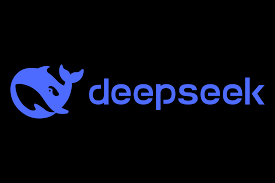Artificial Intelligence (AI) has quickly become a driving force in our world, changing the way we live and work. AI is revolutionizing industries, making tasks faster, smarter, and more efficient. However, the real impact of AI in the job market cannot be easily deciphered.
AI is transforming the job market by creating exciting new opportunities while also replacing some traditional roles. As technology advances, workers need to adapt and learn new skills. Let’s explore how AI is reshaping the workplace and why upskilling has become necessary for success in the current job market.
Impact of AI on Traditional Jobs
The rise of artificial intelligence (AI) has dramatically reshaped the workforce, transforming industries and redefining traditional jobs. For example, AI-powered robots and automation systems have taken over repetitive and labour-intensive tasks in manufacturing, while AI chatbots and virtual assistants are revolutionizing customer service, and providing instant, round-the-clock support.
Even the mundane task of data entry has been taken over by AI algorithms, which can process vast amounts of information in the blink of an eye. And let’s not forget the retail sector, where self-checkout systems and AI-powered kiosks are becoming the norm, making human cashiers a rare sight. While this shift may be hard for some workers, it is important to note AI is also introducing new jobs in the market.
How AI Is Creating New Jobs
While many people focus on how AI replaces jobs, it’s equally important to understand how it creates them. AI drives innovation, leading to the emergence of roles that didn’t exist even a decade ago.
- AI Researchers and Scientists: These professionals are at the forefront of AI innovation, developing new algorithms and models to push the boundaries of what AI can do.
- Machine Learning Engineers: They design and implement machine learning systems, ensuring that AI models are efficient, scalable, and effective.
- Data Scientists: Data scientists analyze large datasets to extract insights and build predictive models, often using AI tools to enhance their analyses.
- AI Consultants: These experts help businesses understand how AI can be applied to solve their specific problems and guide them through the implementation process.
- AI Ethics Specialists: With the rise of AI, there’s a growing need for professionals who can address ethical concerns, ensuring that AI systems are fair, transparent, and unbiased.
- AI Trainers: AI systems need to be trained with vast amounts of data. AI trainers curate and label this data to ensure that AI models learn accurately.
- AI Maintenance Engineers: These professionals are responsible for the ongoing maintenance and optimization of AI systems, ensuring they continue to perform well over time.
- Autonomous Vehicle Engineers: As self-driving cars become more prevalent, there’s a demand for engineers who can develop and maintain the AI systems that power these vehicles.
- AI Healthcare Specialists: These professionals work on integrating AI into healthcare, developing tools for diagnostics, treatment planning, and patient care.
- AI-driven Logistics Coordinators: With AI optimizing supply chains and logistics, there are new roles focused on managing and implementing these AI-driven systems.
Why You Need to Upskill
The advancements of AI in the job market are devaluing traditional education and training systems. What you learnt in school ten years ago may no longer be enough. This means that staying in your comfort zone is no longer an option; you need to upskill.
Upskilling is the process of learning new skills, whether to stay relevant in your career or just for personal growth. It is critical in this evolving job market. Workers who continuously improve their skills will be the ones who thrive in the AI era.
The best part? Upskilling can be easy. Online platforms like Coursera, LinkedIn Learning, and Udemy offer affordable courses on everything from AI basics to advanced machine learning techniques. Here’s a step-by-step guide to help you upskill:
Step-by-Step Guide to Upskilling
- Identify Your Goals: Conduct a skills gap analysis by comparing your current skills with those required for your desired role. Determine what skills you need to acquire or improve to advance in your career.
- Research and Choose Learning Resources: Look for courses, workshops, and training programs that offer the skills you need. Online platforms like Coursera, Udemy, and LinkedIn Learning provide a wide range of courses.
- Create a Learning Plan: Develop a structured plan that outlines what you will learn, how you will learn it, and the timeline for completion. Break down your goals into manageable tasks.
- Allocate Time for Learning: Dedicate specific times in your schedule for learning and stick to it. Consistency is key to mastering new skills.
- Practice and Apply Your Skills: Hands-on practice is crucial for retaining new knowledge. Look for opportunities to apply your skills in real-world scenarios, such as projects, internships, or volunteer work.
- Stay Updated and Adapt: The job market and technology are constantly changing. Stay informed about the latest trends and continuously adapt your skills to remain relevant.
By investing in your growth, you not only secure your place in the workforce but also open doors to exciting new opportunities.
Conclusion
AI is reshaping the job market in profound ways. It’s creating innovative roles, automating repetitive tasks, and pushing workers to adapt. While the changes can be challenging, they also bring opportunities for those willing to learn and grow.
By embracing continuous learning and adapting to the demands of an AI-driven world, you can not only survive but thrive in this new landscape. So, instead of fearing AI, see it as a partner. The future is not about humans VS machines, rather, it’s about how we can work together to achieve more.





